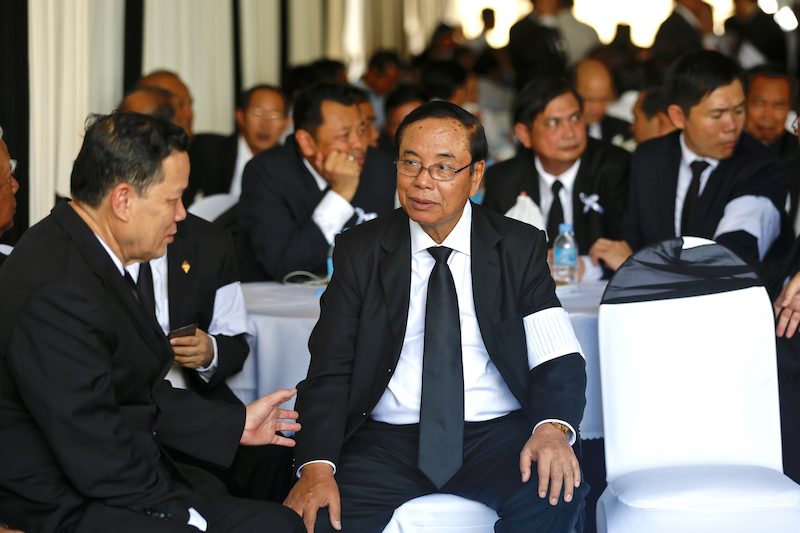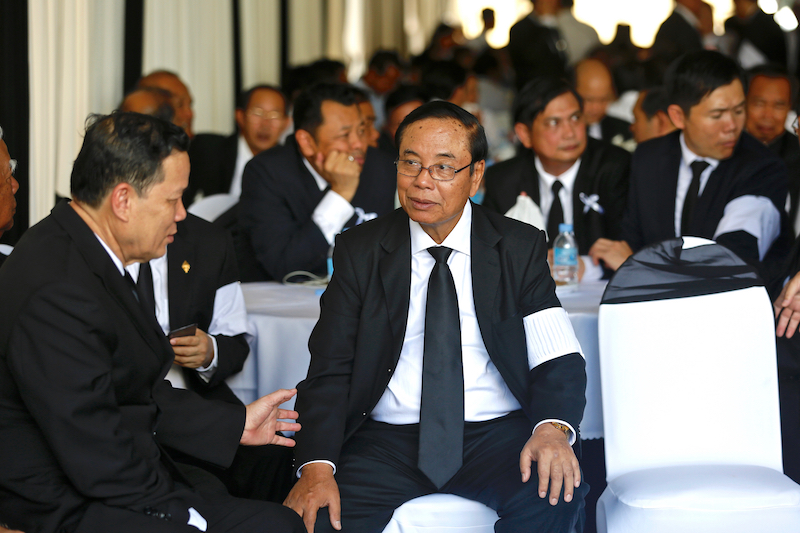Speculation that the death of Deputy Prime Minister Sok An might allow the CPP to divvy up his portfolio to some fresh-faced officials appeared to end on Tuesday with the announcement that a single 67-year-old successor would assume his entire portfolio.
Less than a week after the death of Sok An, who held almost unparalleled control over the ruling party’s patronage networks, Council of Ministers spokesman Phay Siphan said on Tuesday that Deputy Prime Minister Bin Chhin, already named his replacement as head of the Council of Ministers, would take all his other jobs as well.

“It is what we call continuity,” Mr. Siphan said.
If true, Mr. Chhin, who is already head of the National Authority for Land Dispute Resolution, would lead the government’s task force on the Khmer Rouge tribunal, head the Apsara Authority, helm the authority overseeing the Preah Vihear temple, head the National Association of Cambodian Scouts, chair the Cambodian National Commission for Unesco, and become chief of academicians at the Royal Academy of Cambodia, along with various other posts.
More than a dozen other positions held by Sok An were moved to relevant ministries in a post-election shakeup in 2013 widely seen as a move to alleviate tension within the party by spreading out some of the deputy prime minister’s power.
Chau Sun Kerya, spokeswoman for the Apsara Authority, said it would be business as usual at the body, which oversees the Angkor Archaeological Park, the country’s most lucrative tourism destination.
“His Excellency Bin Chhin is in charge and work proceeds as normal. Everything is working as normal under the Council of Ministers. We have continued his [Sok An’s] achievements,” she said.
Mr. Chhin’s takeover of Sok An’s entire portfolio did not surprise some, as he was handed the most high-profile of those positions, minister in charge of the Council of Ministers, just a day after Sok An’s death was announced.
However, there had been speculation that some lower-profile spots may have been given to others within the ruling party. Mr. Siphan could not confirm whether the transfer of power to Mr. Chhin would be permanent.
Political analyst Cham Bunthet said he would not be surprised if Mr. Chhin, a well-respected technocrat within the ruling party, had temporarily been put in control of the vast array of bodies to steady the ship.
“I’d say it’s at the transition period. The period where a lot of people are looking for those positions and, at the same time, they cannot give to one another, they need to look and screen who could be possible,” he said.
Putting so much control in the hands of another aging stalwart of the ruling party did not make political or pragmatic sense, he added.
“Young people have better knowledge on those particular skills than the current older people because, in the government currently, the old people don’t have proper educations,” Mr. Bunthet said.
“In these jobs, I think they need skillful people,” he added. “They need those who have knowledge about the job.”
Ou Virak, head of the Future Forum public policy think tank, said that handing Sok An’s portfolio over to Mr. Chhin was a missed opportunity to revitalize the government prior to crucial upcoming commune and national elections.
“What’s the point in biding time? The government doesn’t have a lot of time to show that they are actually doing something. They need to show some sort of energy,” Mr. Virak said.
“You want to inject some excitement back into the ruling party that’s seen basically as being occupied by the old guard—those people from the 1970s and 1980s—so putting some fresh faces in would have changed their image a bit.”




